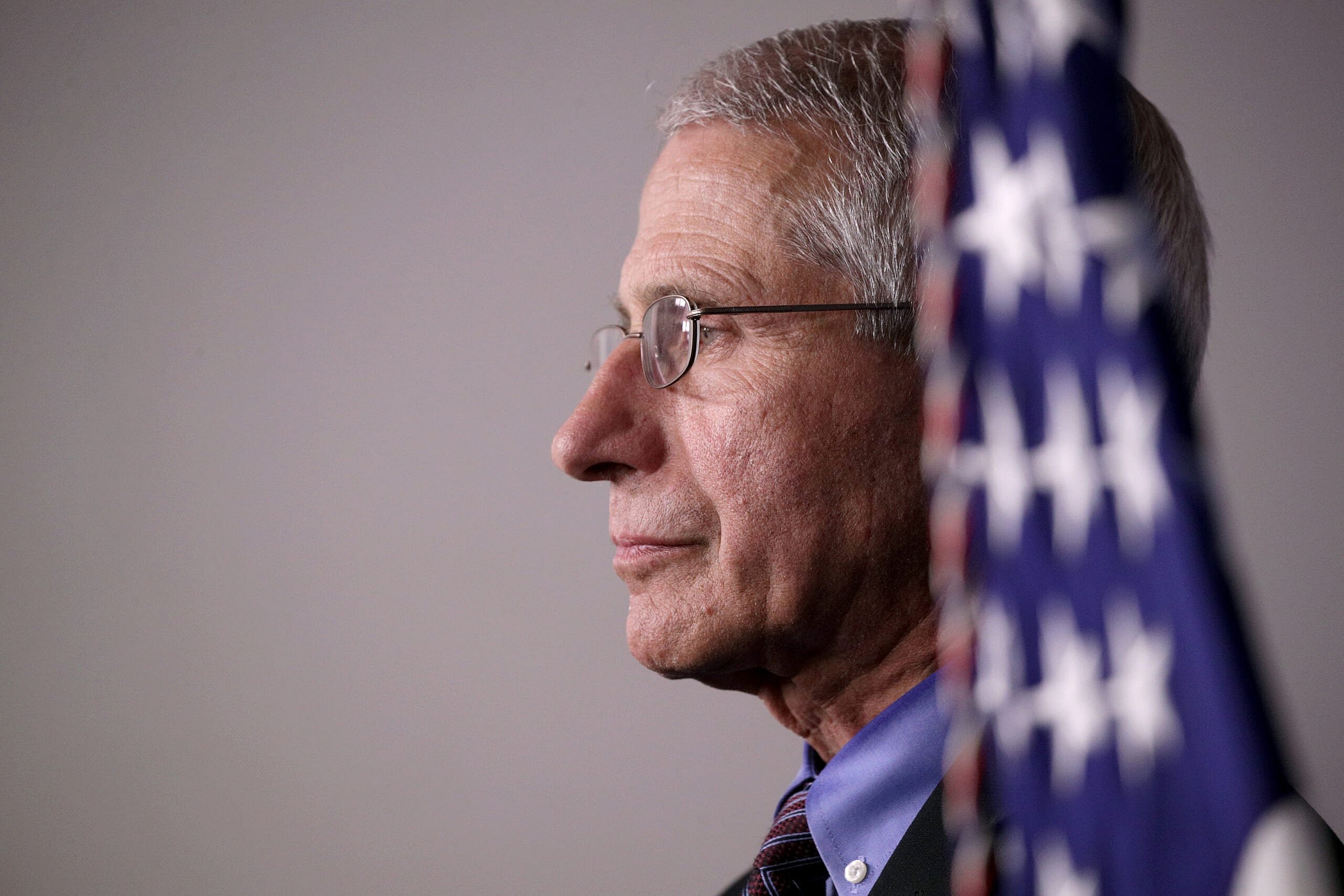How Dr. Anthony Fauci Is Using Science and Data To Battle Coronavirus
”Now is the time, if ever there was one, for us to care selflessly about one another.”

He captivated millions at President Trump’s Coronavirus Task Force briefings; led the nation’s scientific response in the time of our worst health crisis in recent memory; and been the voice of reason in the course of a heated debate about whether or not we are doing the right thing. Dr. Anthony Fauci has even seen his face plastered on everything from candles to cupcakes, while Brad Pitt played him on Saturday Night Live, and thanked him personally at the end of the sketch. Not half bad for a 79-year-old, five-foot-seven immunologist from Bensonhurst, Brooklyn.
Fauci, who earned his MD at Cornell University Medical College and was given the Presidential Medal of Freedom in 2008 in recognition of his “efforts to advance understanding and treatment of HIV/ AIDS,” has been the Director of The National Institute of Allergy and Infectious Diseases (NIAID) since 1984. One of the world’s leading immunologists, he was the obvious choice to shape the scientific strategy against a still-spiking pandemic that Fauci warns could continue to worsen as confirmed coronavirus cases rose in 40 of 50 states heading into the Fourth of July holiday weekend.
As one can tell from those infamous press briefings, Fauci isn’t easily impressed or intimidated by those in positions of power. Of course, he has advised six different presidents on domestic and global health issues, including HIV/AIDS. As Niccolo Machiavelli, the legendary Renaissance advisor to the Tuscan Medici dynasty once said, “A wise prince should take another course: choose wise men for your advisors, and allow only them the liberty of speaking the truth to the prince, and only on matters about which you ask, and nothing else. But you should question them about everything, listen patiently to their opinions, then form your own conclusions later.”
Trump has given Dr. Fauci a bit more freedom than that, but he could do no less under the circumstances, especially amidst the abundant adulation heaped on the heretofore unassuming medico— e.g. The Atlantic, which dubbed him “America’s Coronavirus Crush.” So far doctor Fauci has resisted the attempts to paint him as interested only in forcing the American economy into indefinite shutdown, subverting all other concerns in the cause of science.
As with any new threat, COVID-19 makes life very difficult for those trying to decide the best course of treatment. There are analogues in other viral flus, but learning is happening in real time, day by day. And data is confusing, conflicting, often badly recorded or gathered, and limited. So figuring out a plan of action is very tough. And dynamic. Like trying to run through a forest, blindfolded, at night, of people with varying degrees of health is no mean feat.
On a broadcast of CNBC’s Halftime Report back in late May, Fauci, dubbed the coronavirus’ “unlikely celebrity” by the New York Times, surprised many by stating that “staying locked down for a prolonged period of time” is in fact not the right approach, and that “most of the country” is reopening “in a prudent way.” While lockdowns were necessary to contain the virus initially and flatten the curve, “now is the time, depending upon where you are and what your situation is—to begin to seriously [look] at reopening the economy, reopening the country to try and get back to some degree of normal. I’m totally in favor of that, if done in the proper way, in the appropriate setting.” And even as infections continue to rise, Fauci has said he doesn’t see the need for additional widespread national lockdowns to bring the COVID-19 outbreak under control.
It’s that ability to adapt to changing data and the situation on the ground that marks Fauci as a true professional. And goes to show why he was appointed Director of NIAID back in 1984, and is currently in control of a budget of $5.9 billion, overseeing an extensive portfolio of basic and applied research to prevent, diagnose, and treat established infectious diseases, respiratory infections, and emerging diseases.
At the same time, he has demonstrated remarkable compassion, again refuting those who would claim that he cares not for those whose fate he is effectively deciding. Indeed, at press time, Fauci delivered one of his most heartfelt statements to date, while virtually addressing both Johns Hopkins University and his alma mater, the College of the Holy Cross, declaring, ”Now is the time, if ever there was one, for us to care selflessly about one another.”
While we are still, in his words, at war with the virus, Fauci is hopeful the country will eventually emerge stronger than ever. “I think it will be remembered as really showing what a great country we are,” he told the New York Times. “We have been through, as I’ve said, if you look at the history of our country, some extraordinary ordeals. I mean, world wars and diseases and depressions. And we’ve gotten through it. I have a great deal of faith in the spirit of the American people. We’re resilient. We’re going to get over this. And this is going to end.”
